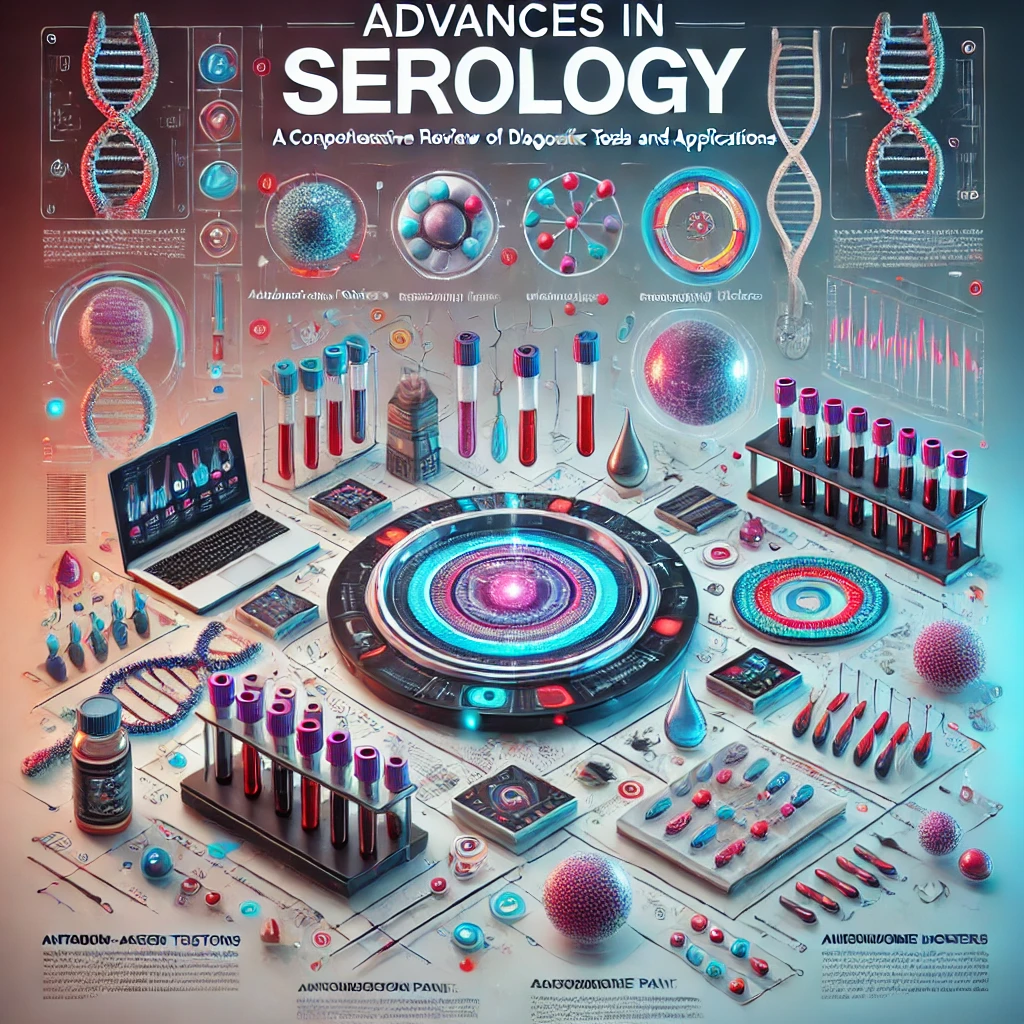
Abstract
Serological testing plays a pivotal role in diagnosing infectious diseases, autoimmune disorders, and blood-related conditions. These tests measure antibodies, antigens, and other biomarkers, providing insights into immune responses and physiological health. This article explores the wide spectrum of serological tests, their clinical significance, and their role in advancing diagnostic medicine.
Introduction
Serology, the branch of immunology that studies serum and other bodily fluids, is an essential diagnostic tool in modern medicine. With applications ranging from infectious disease screening to autoimmune disorder diagnosis, serology aids in understanding immune responses to pathogens, allergens, and various conditions. This article reviews a curated list of serological tests, discussing their methodologies, clinical relevance, and potential impact on patient outcomes.
Categories of Serological Tests
1. Infectious Disease Diagnostics
Serological tests are crucial for detecting infections, especially in early and asymptomatic stages.
Hepatitis and HIV Testing
- Anti-HCV (ICT): Screens for hepatitis C virus antibodies.
- HBsAg (Screening): Detects hepatitis B surface antigens.
- HIV Ab 1/2 (ICT): Identifies HIV-1 and HIV-2 antibodies for early diagnosis.
Tuberculosis (TB) Markers
- Anti-TB IgA, IgG, IgM (ICT): Indicates different stages of TB infection.
- Tuberculosis (TB) ICT: A rapid diagnostic tool for TB screening.
Vector-Borne Diseases
- Chikungunya IgG/IgM: Detects recent or past chikungunya virus infections.
- Malaria ICT: Screens for malarial antigens in blood.
- Kala Azar ICT: Identifies antibodies for leishmaniasis.
Febrile Illness Panels
- Febrile Antigen/Triple Antigen: Diagnoses typhoid and other febrile illnesses.
- Widal Test: Detects antibodies for typhoid fever.
- Weil Felix Test: Identifies rickettsial infections.
2. Blood Disorders and Coagulation Studies
Understanding coagulation and blood-related conditions is a significant aspect of serology.
Clotting Factors and Coagulation Tests
- APTT (Activated Partial Thromboplastin Time): Assesses intrinsic and common coagulation pathways.
- Prothrombin Time/PT (INR): Evaluates extrinsic coagulation pathways.
- Fibrinogen Level & FDP (Fibrin Degradation Product): Monitors clot formation and breakdown.
- D-Dimer: Diagnoses thrombosis and associated conditions like COVID-19 complications.
Specialized Coagulation Studies
- Anti-Thrombin III: Assesses antithrombin deficiency linked to thrombophilia.
- von Willebrand Factor (vWF) Activity and Antigen: Identifies von Willebrand disease.
- Factor VIII and IX: Screens for hemophilia.
3. Autoimmune and Rheumatological Diagnostics
Serological markers aid in diagnosing and monitoring autoimmune disorders.
Rheumatological Markers
- RA/RF (Rheumatoid Arthritis/Rheumatoid Factor): Identifies rheumatoid arthritis.
- ASO Titre: Detects streptococcal infections causing post-infectious sequelae.
- Lupus Anticoagulant Panel: Screens for antiphospholipid syndrome and lupus.
Autoimmune Hemolytic Anemia (AIHA)
- Coomb's Test (Direct/Indirect): Detects autoantibodies against red blood cells.
4. Reproductive Health and Pregnancy
Serological tests are also essential in reproductive health diagnostics.
- Anti-Sperm Antibody: Identifies antibodies causing infertility.
- Urine for Pregnancy Test: Confirms early pregnancy through hormone detection.
- Rh-Antibody Titre: Monitors Rh incompatibility in pregnancy.
5. Other Specialized Tests
Serology has applications beyond common diseases, providing diagnostic insights into rare conditions.
- Interleukin 6 (IL-6): A marker for inflammation and cytokine storms in severe infections.
- Rose Waaler Test: Screens for rheumatoid arthritis.
- TPHA (Treponema Pallidum Hemagglutination Assay): Confirms syphilis.
- VDRL (Venereal Disease Research Laboratory Test): Detects syphilis antibodies (qualitative and quantitative).
Advancements and Future Prospects
Recent innovations in serology include the development of more sensitive and specific tests, integration with molecular diagnostics, and rapid testing methodologies. Technologies such as ELISA, ICT, and point-of-care diagnostics have significantly improved test accessibility and turnaround times. The ongoing integration of artificial intelligence and machine learning in serological analysis is set to further revolutionize the field.
Conclusion
Serology continues to be a cornerstone of modern diagnostic medicine, offering critical insights into a wide range of diseases. As research advances, these tests will become even more accurate, faster, and accessible, enhancing patient care and public health.





